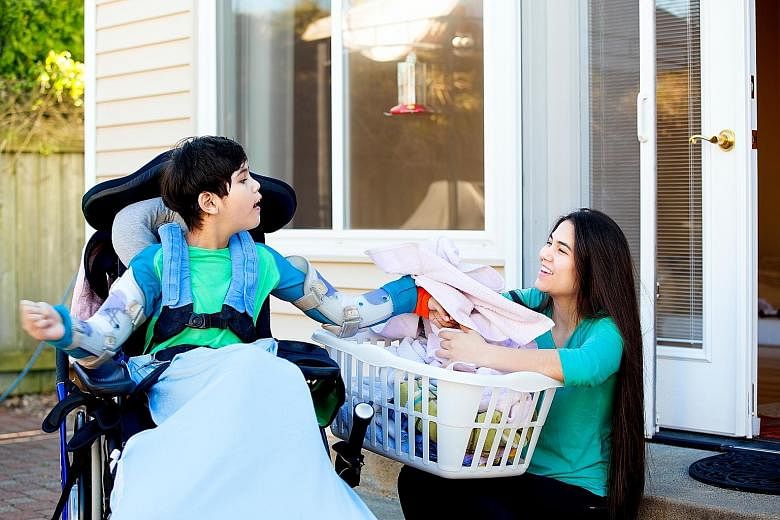WASHINGTON • "I don't know how you do it," a well-meaning parent says. It is innocent enough but it is voiced so often to parents of children with special needs that it can grate on their nerves.
Sometimes, those parents want to shake their heads and respond: "I don't know either." Other times, the reaction is more resolved: "You just do." Regardless of the answer, parenting a child with special needs can feel lonely.
People have drifted away because they do not know how to continue to be a friend in this unfamiliar territory. Often when people are not sure what to do, they do not do anything, which widens the gap.
It can be tough for people who are not in that position to know what to say or do to help parents of kids with special needs. Here are six things to avoid and six things you can do instead.
1 Do not pretend to understand.
You can listen but you cannot fully grasp the impact of raising a child with special needs.
But just because you do not know the exact experience does not mean you cannot educate yourself. Ask your friend for a resource or two so you can better understand her child's challenges and gifts. Her child is not broken; he just has needs that look different.
2 Do not ignore the needs.
Your friend knows her child is different. Ignoring that will just put a wall between you. Do talk about it, gently. Be sensitive and understanding. Being honest helps.
If you want to invite the child to a birthday party, but are not sure about his needs, say that.
"Hey, Joe would really love for Chris to come celebrate his birthday. We will be at an arcade. Will that work for Chris?"
And be open to alternative arrangements, such as an individual play date instead of the group party.
3 Do not talk about special needs all the time.
Parents who spend a lot of time talking about their child's needs with doctors, specialists, therapists and school personnel may want a break from that.
Do provide normal conversation. Be fun. Talk about your life (without apologising). Have coffee and chat about other things.
4 Do not run away.
When people do not know how to handle a situation, they are inclined to disappear. Do not be the friend who leaves.
Special needs parents need help. They want you to stick around. Even a quick text or a note in the mail can mean a lot.
When your friend has time, make yourself available.
5 Do not talk behind her back.
Your friend knows her life is different and sometimes gossip-worthy. Do not feed that. She needs someone on her side. It is better to be quiet than fuel the gossip mill. When you hear something or wonder about a situation, gently ask her about it. She may not want to talk, but she will know that you came to her instead of talking to everyone else.
6 Do not take it personally if she has to cancel.
Do understand that her world is intense. Sometimes, she may need a break from interacting, a day on which she does not have to leave the house or put on a happy face.
WASHINGTON POST

